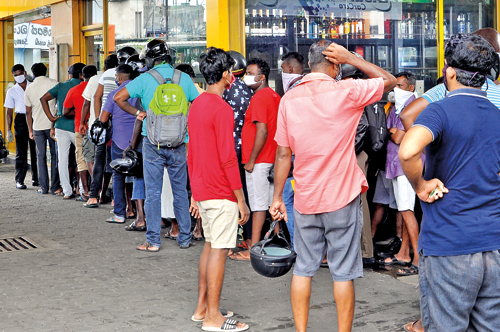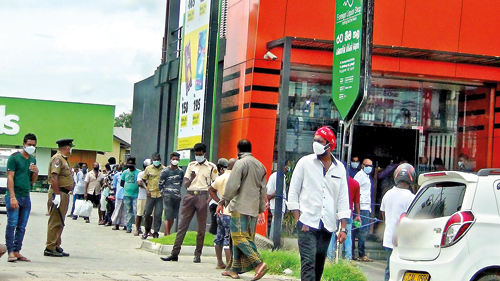News
Booze shops stay open to keep state coffers replenished
 The closure of the 900 liquor shops for nearly two months to help contain the coronavirus has cost the state Rs. 25 billion in excise tax.
The closure of the 900 liquor shops for nearly two months to help contain the coronavirus has cost the state Rs. 25 billion in excise tax.
The Excise Department said that illegal operators have caused 10%, or Rs 2.5 billion, of excise tax loss to the state during this period.
The revenue loss is estimated on the basis of the Rs. 130 billion plus revenue target the Government has set for the department.
The department in its countrywide raids in the last six weeks has detected 3,079 instances of illicit liquor distilling and related cases. This includes 466 cases of distilling of moonshine, 1,623 cases of possession of raw materials and production spirits, and 575 related offences.
In other raids, 230 government-approved liquor shops have been caught selling liquor at high prices through the back door.
Others include 137 narcotics-related cases and 27 cases of smoking and possession of imported tobacco for which duty had not been paid.
Excise officials have arrested 375 people and confiscated cash of Rs. 50 million together with three luxury vehicles.
Deputy Commissioner Kapila Kumarasinghe said the government was pushed to let liquor shops open in areas where the curfew was eased because of the roaring bootleg trade.
In the districts of Gampaha and Colombo, however, only supermarkets were allowed to sell liquor.
Mr. Kumarasinghe said supermarkets were allowed because they follow regulations.
“They insist on customers using sanitisers, wearing masks and [maintaining] social distancing,’’ he said.

Pic by Hiran Priyankara Jayasinghe
The government decided to shut all liquor stores on March 22 following the detection of the first Sri Lankan coronavirus patient as health authorities deemed that those consuming liquor could spread the deadly disease rapidly.
But illegal bootleg makers have been ramping up the ‘kasippu’ production.
Raids by excise officials in rural areas have found illegal operations in the backyards of homes and in the city in the home kitchens.
Mr. Kumarasinghe conceded that opening of liquor stores would also dampen bootleg sales.
He said five units carrying out raids would continue their work to interrupt the illegal trade.


